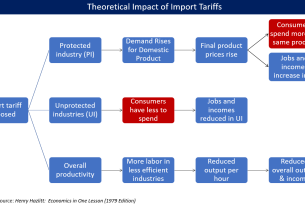This post was drafted by EFF legal intern Alissa Johnson.
EFF signed on to an amicus brief drafted by the National Association of Criminal Defense Lawyers earlier this month petitioning the Oregon Supreme Court to review State v. Simons, a case involving law enforcement surveillance of over a year’s worth of private internet activity. We ask that the Court join the Ninth Circuit in recognizing that people have a reasonable expectation of privacy in their browsing histories, and that checking a box to access public Wi-Fi does not waive Fourth Amendment rights.
Mr. Simons was convicted of downloading child pornography after police warrantlessly captured his browsing history on an A&W restaurant’s public Wi-Fi network, which he accessed from his home across the street. The network was not password–protected but did require users to agree to an acceptable use policy, which noted that while web activity would not be actively monitored under normal circumstances, A&W “may cooperate with legal authorities.” A private consultant hired by the restaurant noticed a device on the network accessing child pornography sites and turned over logs of all of the device’s unencrypted internet activity, both illegal and benign, to law enforcement.
The Court of Appeals asserted that Mr. Simons had no reasonable expectation of privacy in his browsing history on A&W’s free Wi-Fi network. We disagree.
Browsing history reveals some of the most sensitive personal information that exists—the very privacies of life that the Fourth Amendment was designed to protect. It can allow police to uncover political and religious affiliation, medical history, sexual orientation, or immigration status, among other personal details. Internet users know how much of their private information is exposed through browsing data, take steps to protect it, and expect it to remain private.
Courts have also recognized that browsing history offers an extraordinarily detailed picture of someone’s private life. In Riley v. California, the Supreme Court cited browsing history as an example of the deeply private information that can be found on a cell phone. The Ninth Circuit went a step further in holding that people have a reasonable expectation of privacy in their browsing histories.
People’s expectation of privacy in browsing history doesn’t disappear when tapping “I Agree” on a long scroll of Terms of Service to access public Wi-Fi. Private businesses monitoring internet activity to protect their commercial interests does not license the government to sidestep a warrant requirement, or otherwise waive constitutional rights.
The price of participation in public society cannot be the loss of Fourth Amendment rights to be free of unreasonable government infringement on our privacy. As the Supreme Court noted in Carpenter v. United States, “A person does not surrender all Fourth Amendment protection by venturing into the public sphere.” People cannot negotiate the terms under which they use public Wi-Fi, and in practicality have no choice but to accept the terms dictated by the network provider.
The Oregon Court of Appeals’ assertion that access to public Wi-Fi is convenient but not necessary for participation in modern life ignores well-documented inequalities in internet access across race and class. Fourth Amendment rights are for everyone, not just those with private residences and a Wi-Fi budget.
Allowing private businesses’ Terms of Service to dictate our constitutional rights threatens to make a “crazy quilt” of the Fourth Amendment, as the U.S. Supreme Court pointed out in Smith v. Maryland. Pinning constitutional protection to the contractual provisions of private parties is absurd and impracticable. Almost all of us rely on Wi-Fi outside of our homes, and that access should be protected against government surveillance.
We hope that the Oregon Supreme Court accepts Mr. Simons’ petition for review to address the important constitutional questions at stake in this case.



